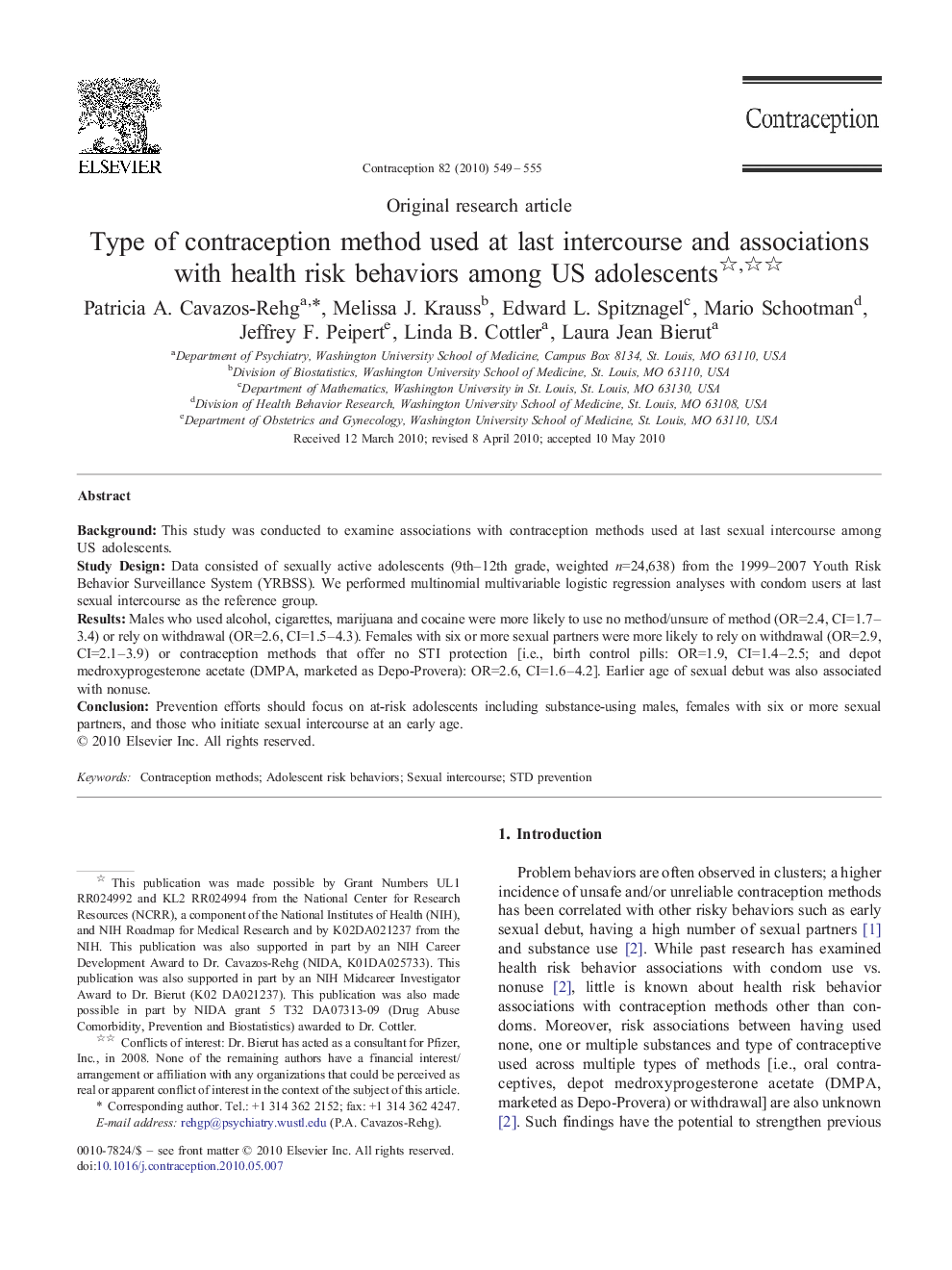| Article ID | Journal | Published Year | Pages | File Type |
|---|---|---|---|---|
| 3914352 | Contraception | 2010 | 7 Pages |
BackgroundThis study was conducted to examine associations with contraception methods used at last sexual intercourse among US adolescents.Study DesignData consisted of sexually active adolescents (9th–12th grade, weighted n=24,638) from the 1999–2007 Youth Risk Behavior Surveillance System (YRBSS). We performed multinomial multivariable logistic regression analyses with condom users at last sexual intercourse as the reference group.ResultsMales who used alcohol, cigarettes, marijuana and cocaine were more likely to use no method/unsure of method (OR=2.4, CI=1.7–3.4) or rely on withdrawal (OR=2.6, CI=1.5–4.3). Females with six or more sexual partners were more likely to rely on withdrawal (OR=2.9, CI=2.1–3.9) or contraception methods that offer no STI protection [i.e., birth control pills: OR=1.9, CI=1.4–2.5; and depot medroxyprogesterone acetate (DMPA, marketed as Depo-Provera): OR=2.6, CI=1.6–4.2]. Earlier age of sexual debut was also associated with nonuse.ConclusionPrevention efforts should focus on at-risk adolescents including substance-using males, females with six or more sexual partners, and those who initiate sexual intercourse at an early age.
